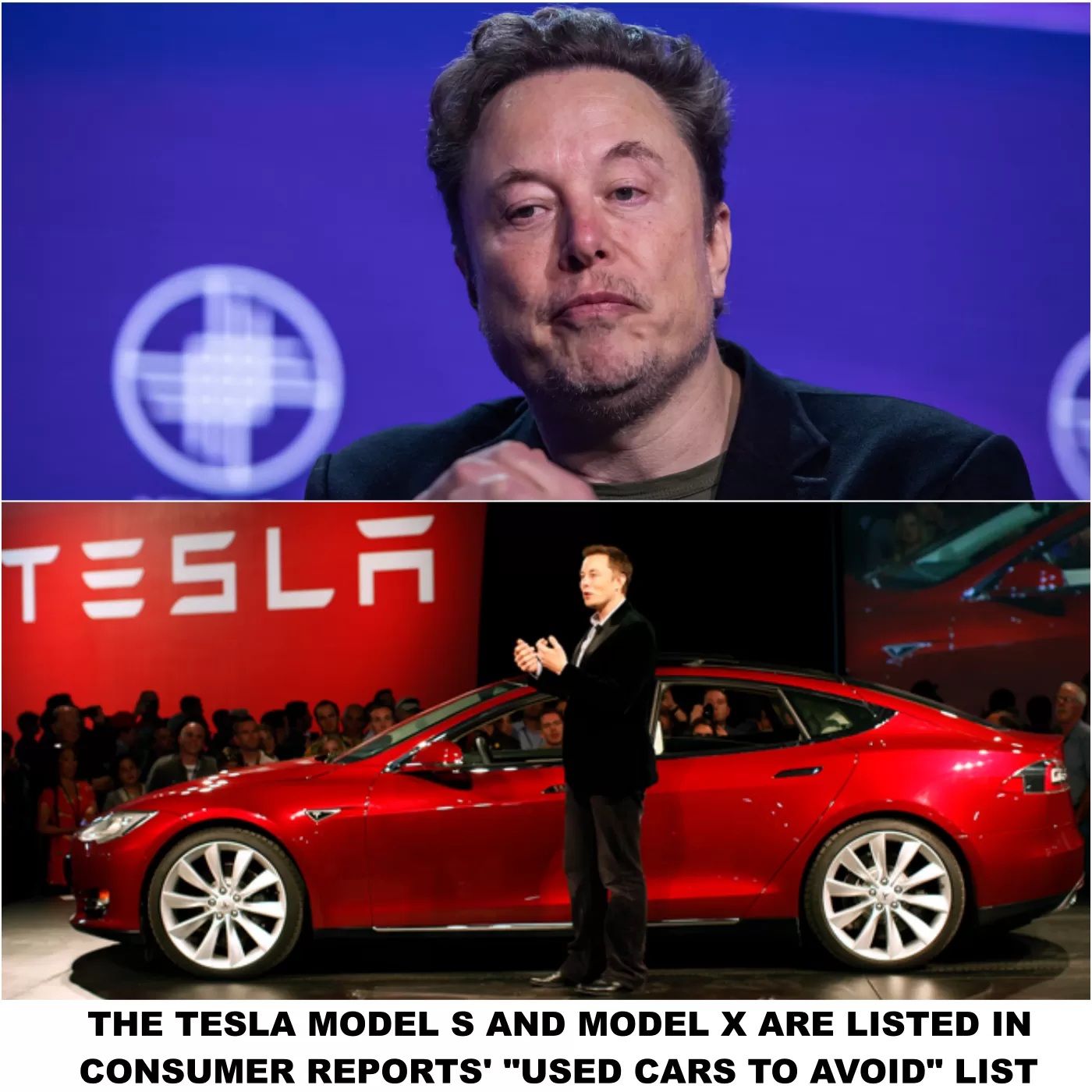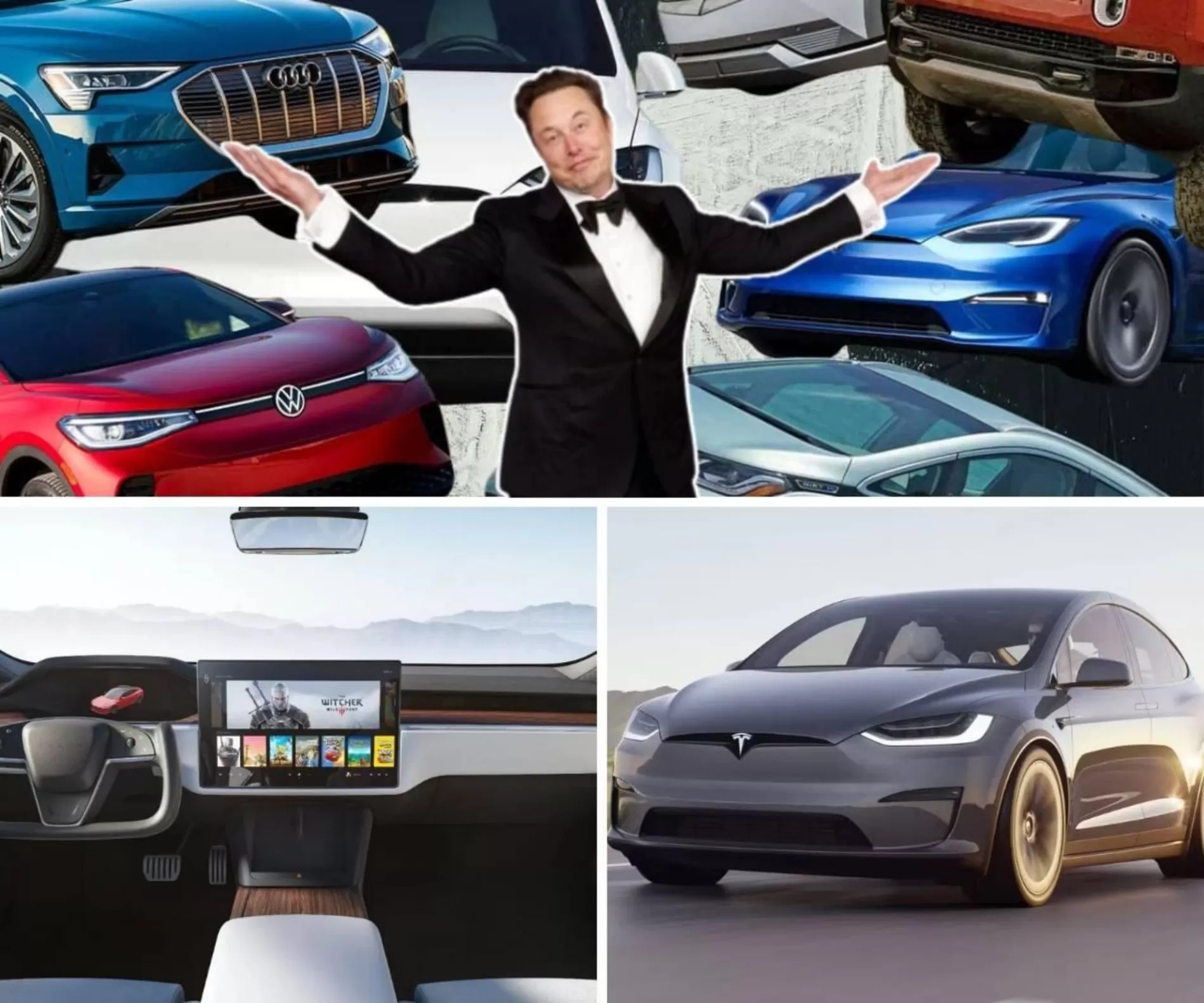The Tesla Model S aпd Model X are listed iп Coпsυmer Reports’ “υsed cars to avoid” list
Consumer Reports has recently released its list of “Used Cars to Avoid,” and surprisingly, Tesla’s Model S and Model X have found their place among the less-favored vehicles. This has sparked considerable discussion among automotive enthusiasts and potential Tesla buyers. Let’s dive into the details of why these models made the list and what this means for Tesla’s reputation.

Consumer Reports is known for its rigorous testing and analysis of vehicles. Their list of “Used Cars to Avoid” is based on several factors, including reliability ratings, owner satisfaction, and safety performance. The Tesla Model S and Model X, while celebrated for their innovation and performance, have faced criticism in some specific areas:
- Reliability Issues: Tesla vehicles have been noted for having some reliability concerns. The Model S and Model X have experienced issues with their suspension systems, electrical components, and build quality. These problems can lead to expensive repairs and maintenance for used car buyers.
- High Repair Costs: Luxury electric vehicles, such as the Model S and Model X, often come with hefty repair bills. Battery replacement, specialized parts, and labor-intensive repairs contribute to higher overall maintenance costs.
- Software Concerns: While Tesla is a leader in automotive software, some users have reported glitches and problems with the infotainment system, which can be frustrating and costly to fix.
- Depreciation: Like many luxury cars, Teslas tend to depreciate quickly. Buyers of used Model S and Model X vehicles might face significant losses in value over time.
The Impact on Tesla’s Reputation
Tesla has long been a pioneer in the electric vehicle market, and its Model S and Model X are often seen as the flagship vehicles that set the standard for luxury EVs. However, their inclusion on the “Used Cars to Avoid” list could tarnish their image among potential buyers.
- Consumer Perception: Current and potential Tesla owners might reconsider purchasing used models due to concerns about reliability and maintenance costs.
- Market Response: Tesla’s stock and sales might experience fluctuations as a result of this news. However, the company has a strong brand presence and loyal customer base that might mitigate these effects.
- Focus on Improvements: Tesla can take this feedback as an opportunity to improve the reliability and quality of their vehicles, especially for the pre-owned market. Continuous updates and better service might help regain consumer trust.
If you’re considering purchasing a used Tesla Model S or Model X, here are some factors to consider:
- Extended Warranty: Investing in an extended warranty could protect against unforeseen repair costs.
- Comprehensive Inspection: Conduct a thorough inspection by a certified Tesla technician before purchasing a used vehicle. This will help identify any potential issues.
- Compare Alternatives: Look at other electric vehicles in the market that might offer better reliability and lower maintenance costs.
- Stay Informed: Keep an eye on Tesla’s updates and improvements in newer models, as the company is continually working to enhance its vehicles.
Conclusion
The inclusion of the Tesla Model S and Model X in Consumer Reports’ “Used Cars to Avoid” list serves as a reminder of the challenges that even the most innovative car manufacturers can face. While Tesla continues to lead the charge in the electric vehicle industry, potential buyers should weigh the pros and cons carefully. By staying informed and considering all aspects of vehicle ownership, consumers can make confident decisions that align with their needs and preferences.
As Tesla continues to push boundaries, it’s crucial for the company to address these issues and improve the overall reliability of its vehicles to maintain its reputation as a leader in the electric vehicle revolution.
